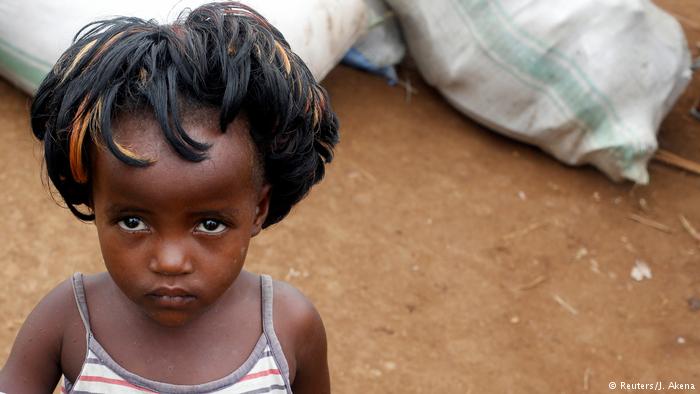Sondos Al-Qattan is everything wrong about the Kafala system
Sondos Al-Qattan recently gave herself a new title in addition to beauty blogger and social media influencer: slave owner.
She stepped beyond her remit of make-up tutorials and posted a video message expressing how displeased she was that a “new law” for Filipino domestic workers would allow her “servant” to hold her own passport and have one day off a week.
“How can we allow servants at home who get to keep their passports? … What’s worse is they have one day off a week!” Al-Qattan wailed.
She went on to say that it was unfair to extend this privilege only to Filipino workers. “What about Indian workers? They are all human.”
Al-Qattan represents everything that is wrong with the Kafala visa sponsorship and employment scheme in the Gulf States.
These are not concessions granted only Filipino domestic workers. Every domestic worker employed in Kuwait has had these rights since 2015.
Kuwait passed a domestic worker law three years ago introducing many new rights. These included protecting domestic workers’ right to retain possession of their passports and introducing the benefit of a weekly day off as well as annual paid vacation.
The law was drafted and ratified after several cases of maltreatment of domestic workers came to light but not everybody knows about it.
“Unfortunately, Sondos Al-Qattan’s comments are not unusual for Kuwaiti employers, who are not used to the idea that their domestic workers should have rights such as keeping their own passports or a weekly day off,“ says Rothna Begum, a senior researcher at Human Rights Watch.
“There are many employers who believe they are good employers because they don’t beat their domestic workers. But confiscating passports, confining domestic workers to their houses and not providing a weekly rest day are all forms of labor abuse which in some contexts could even amount to forced labor.”
A 2010 Human Rights Watch report documents many cases of abuse against domestic workers, including the non-payment of wages, long working hours with no rest days, physical and sexual assault and no clear channels for redress.
The statistics took on a human face when Filipino domestic worker Joanne Demafelis’ lifeless body was found stuffed in a freezer a year after she had been reported missing.
According to the Philippines government data, 6,000 cases of abuse, sexual harassment and rape were handled by the Philippine embassy in Kuwait in 2017. These numbers are likely to be higher as many cases go unreported given how difficult it is for workers to come forward.
A diplomatic row ensued last May when Philippine President Rodrigo Duterte called for a complete employment ban, threatening bilateral relations with Kuwait.
Kuwait came to the negotiating table and signed an agreement with the Philippines, promising the same provisions already introduced by the new law and adding new ones such as the activation of a 24/7 hotline for distressed workers and the creation of a special police unit to assist Philippine embassy officials when extracting a domestic worker from the home of an abusive employer, also known as a “rescue operation”.
That Al-Qattan was not aware of a law that has been in place for more than three years shows how ineffective the Kuwait government has been in creating the necessary awareness. Her brazen attitude is nothing short of an understanding that she is above the law and indicates how lax the Kuwaiti government has been in enforcing domestic workers’ rights.
The law so far seems to be nothing more than a token gesture to mollify labor rights watchdogs and give the appearance that Kuwait is concerned about the migrant domestic workers, which comprise about a third of its population.
In this video, Al-Qattan says that she wants to drop the issue because it is not even important and there are more important matters such as Botox.
She has refused to apologize despite the backlash and the withdrawal of sponsors from the cosmetics industry who now want to distance themselves from her. She has even portrayed herself as a victim, calling the online outrage an attack on the hijab, on Islam and Kuwait. She has even called on her 2.8 million followers to boycott the make-up brands that have dropped her.
It is a feeble attempt to shut down the discussion and go back to business as usual. She is joining the many who prefer to look away while thousands of domestic workers are systematically abused.
But the flaws of the Kafala system cannot be covered up like the imperfections that Al-Qattan teaches people to conceal in her make-up tutorials.
Lambasting Al-Qattan will not rectify the problem but can help to reveal these flaws and promote a campaign to remove – and not simply conceal – them.
Calling cosmetic brands to pull their endorsements is a start, but it shouldn’t stop there.
Countries that send their citizen to others as labor have to protect their citizens abroad. It is already standard operating procedure for the Philippine embassy to screen contracts and would-be employers. It could blacklist Al-Qattan and employers with a track record of abuse, who seem to be of the medieval view that people you employ as domestic workers are tantamount to slaves.
The Philippines should also demand that Kuwait reform the Kafala system and enforce its domestic worker law.
“Little will change for the lives of domestic workers in Kuwait as long as Kuwaiti authorities allow employers to act as sponsors with the power to decide whether their domestic worker can leave or change jobs and to punish domestic workers who flee their employers’ homes,” says HRW’s Begum pessimistically.
“The Kafala system is the most serious impediment to the realization of domestic workers rights in the country.”
Author: Ana P. Santos (act)






